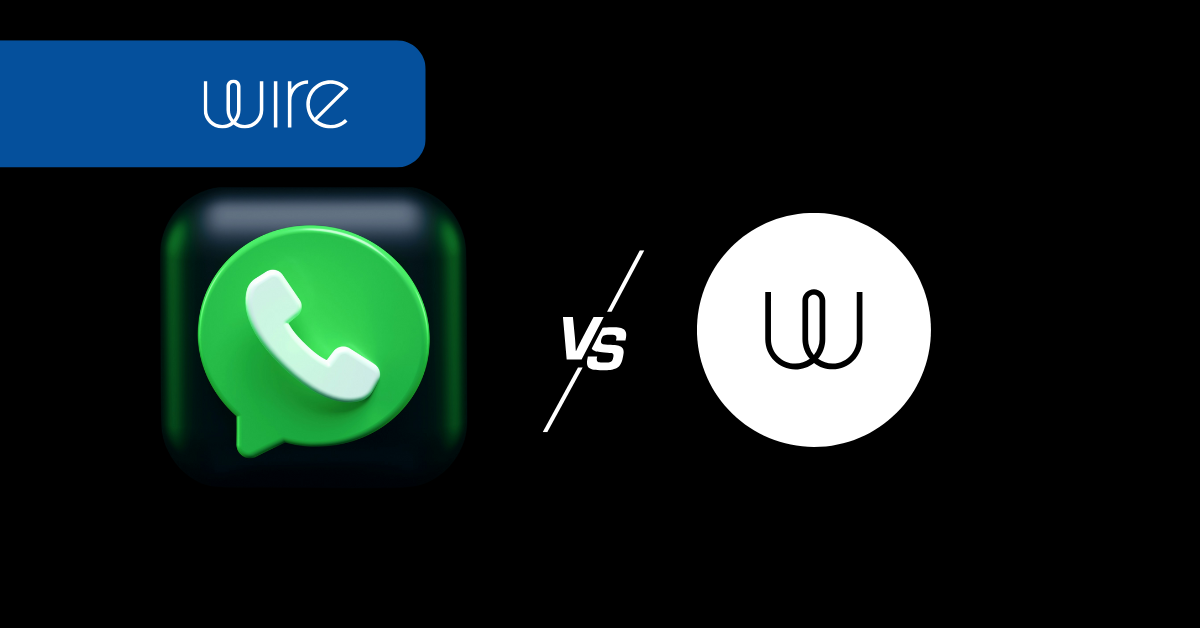Looking for a secure, compliant WhatsApp alternative? Whether you're a privacy-conscious individual, an enterprise seeking GDPR-compliant tools, or an EU-based organization demanding digital sovereignty, this article covers how to choose the best alternative to WhatsApp.
Why Consider an Alternative to WhatsApp?
WhatsApp is the world’s most popular messaging app but popularity doesn’t equal privacy.
- Meta (WhatsApp’s parent company) has a history of data sharing across platforms.
- WhatsApp collects metadata (who, when, how long) that can be exploited.
- Backups are not always encrypted, exposing chat history to potential access.
- WhatsApp's servers reside outside the EU, triggering data residency concerns under regulations like GDPR and NIS2.
For European businesses and public-sector organizations, compliance and data sovereignty aren’t just preferences, they’re legal imperatives.
Risks of Using WhatsApp at Work
Using WhatsApp in a personal context is one thing, using it for sensitive internal communication is another. Here’s what organizations should know:
1. End-to-End Encryption Isn’t the Whole Story
WhatsApp uses E2EE, but only for message content, not for metadata. This means Meta still collects information like:
- Who you message
- When you send messages
- From where (IP address, device, OS)
This data is enough to build behavioral and organizational profiles, which are attractive to advertisers and vulnerable to surveillance.
2. Inconsistent Compliance with EU Regulations
WhatsApp’s backend infrastructure and Meta’s business model make GDPR compliance complex. In fact, Meta has been repeatedly fined by the European Data Protection Board, including a €1.2 billion fine in 2023 for violating international data transfer rules.
3. Stealth Tracking Through Facebook & Instagram Integration
Meta uses cross-platform data collection strategies, even when users haven’t explicitly consented. This includes tracking via pixels, embedded services, and infrastructure hidden across Meta properties.
This ecosystem-wide tracking presents a risk for businesses operating in regulated industries, where data localization, privacy, and auditability are critical.
What Makes a Good WhatsApp Alternative?
When evaluating messaging platforms, especially for business or secure communication, consider:
- End-to-end encryption (E2EE)
- Transparent data handling (open-source or third-party audits)
- EU-based or EU-compliant hosting
- Multi-device support
- On-premise or sovereign deployment options
- Feature parity (group chats, calls, file sharing)
WhatsApp vs Wire: Key Differences
| Feature |
WhatsApp |
Wire |
| E2EE for content |
✅ Yes |
✅ Yes |
| E2EE for metadata |
❌ No |
✅ Yes (MLS protocol) |
| Open source |
❌ No |
✅ Yes |
| EU-hosted / on-premise |
❌ US-based (Meta) |
✅ Germany / Switzerland / On-prem |
| GDPR & NIS2 compliant |
⚠️ Complex |
✅ Full compliance |
| Designed for enterprises |
❌ Consumer-first |
✅ Built for business |
| Secure guest access |
❌ No |
✅ Yes |
| Multi-device & multi-account |
⚠️ Limited |
✅ Yes |
| Trust model |
❌ Based on Meta/Facebook |
✅ Zero trust, privacy-by-design |
Unlike WhatsApp, Wire is not monetized by data. Instead, it’s funded through enterprise subscriptions: meaning no ads and no hidden business model.
Final Thoughts
With rising privacy concerns and evolving EU data regulations, choosing a secure, compliant messaging platform is no longer optional. While WhatsApp may suffice for casual chats, it falls short for professional, compliant and privacy-centric communication.
Wire is the best WhatsApp alternative for organizations that need more than a consumer-grade app: it’s secure by design, enterprise-ready, and built in Europe.
